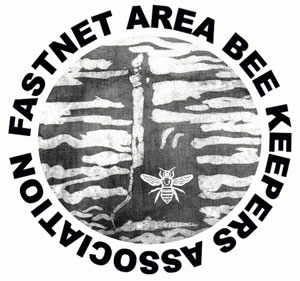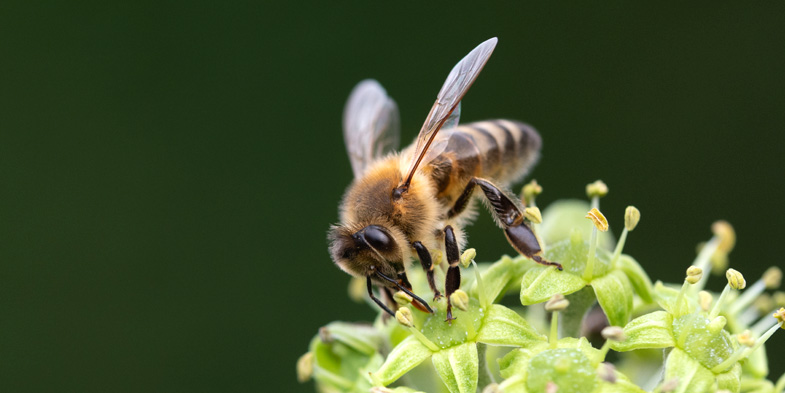Hello Beekepers!
Hello all and hoping the season produced a great crop of honey for those of you who have colonies. For those of you who have only recently started the wonderful art of apiculture, what a pleasure you had in harvesting your first batch of liquid gold.
What goes on in the hive at this time of year?
The drones are evicted but you can still see the odd one or two who escaped.The workers have much less to do now that queenie is not laying as prolifically. They have much less foraging to do given that the honey flow is over or just about. They develop fat bodies and this sustains them over the winter. They are often referred to as winter bees and can live for six months. They are essential for the survival of the colony. Remember, these are the girls who’ll be feeding and tending the new brood in the Spring.
Hopefully your colonies are queen-right. I found this year to be somewhat challenging regarding new queens and found that a few never seemed to return from mating flights and others did not seem to be mated properly.
Honeybees do not hibernate during the winter months as some would believe but they do form a cluster to care for queenie and keep themselves warm. Again, all the more reason for not opening colonies.
Preparing for Winter
Stores
Your colony should be full of bees and have enough food to sustain them. So, what’s enough food/stores? A national frame holds a little over 5 lbs of honey when it’s filled on both sides. A colony needs more than 35 lbs of stores to ensure starvation does not occur. We are very lucky here as we have heather and ivy forage and I’ve never lost a colony due to starvation. I do however always have them fed just after harvesting and add Hive Alive (a nutritional supplement) to the 1:1 syrup solution. Feeding is always better done in the evening time.
Health
The colony should be healthy. Have you treated your bees for varroa? I treated with Apiguard when the temperatures were a guaranteed 15 degrees. Place the first tray on top of the brood and put the second on 2 weeks later. Remove four weeks after administering the second treatment. I have been told that the bees do not build up resistance to this. I noticed that the varroa load was very manageable this year and I have put this down to the fact that I treated my more infected colonies with Apibioxal using the vape method last December. More on that next month. I really don’t like too much medicinal intervention but it’s wonderful when you see your colonies being healthy and productive. Incidentally, we bought a vaporiser for the association this year and can be loaned to members.
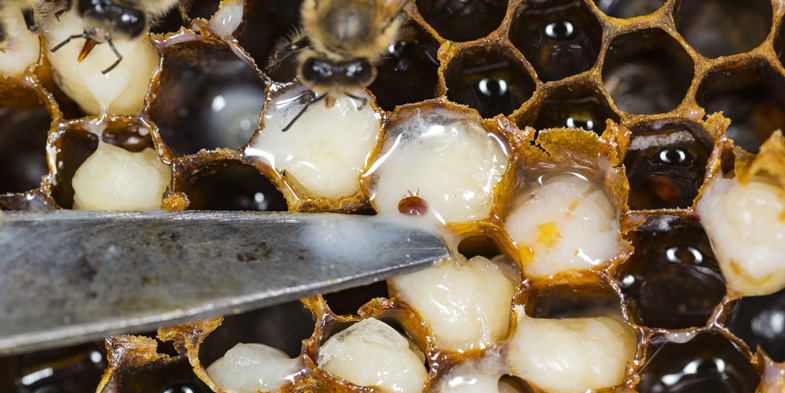
Apiary
The colony should be well secured and waterproof. Now is a great time to clean up the apiary, ensuring that there’s no undergrowth beneath the hives. Fences should be intact so nosey cattle, etc., have no access. Entrance blocks should be inserted and mouse-guards inserted for those with older model hives. I’ve noticed that a few of my poly hives had areas where water could lodge and I tilt the hive now. I just place an inch piece of wood under the back side of the hive enabling water to flow out. Just be careful because a build-up of moisture does so much harm. There are so many opinions regarding air circulation within the hive during winter. I generally only push the inspection board about three-quarters of the way in. Most of my hives are poly and this has worked well. I always leave a little opening in the crown board too. Make sure that the hive stands are fit for purpose and I always tie down the hives to the stand with ratchet straps also.
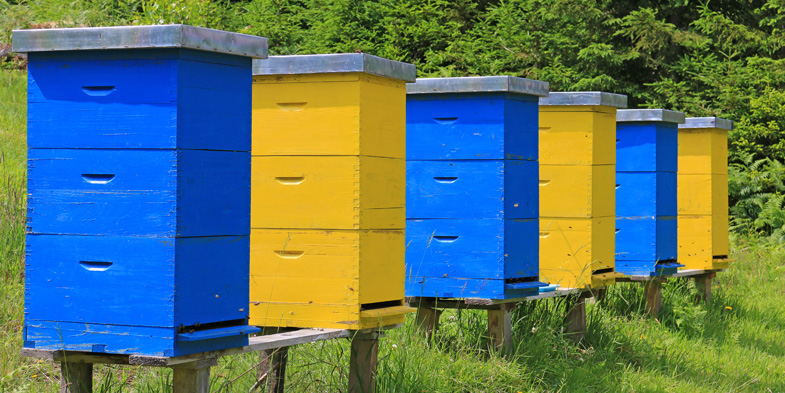
Supers & Dirty Equipment
This is a great time of year to have a look through your stored supers. Replace or repair when necessary. I generally reuse my super frames. Just remove the damaged foundation and scrape the wood. I mix 1 kg of washing soda to 5 ltr boiling water and use a large pot. Frames that are to be reused should be boiled in this solution before you put in the replacement foundation next season. Again, these frames probably won’t have to be touched for years so it’s important to do the job right. Regarding dirty or old brood frames that you removed during the season for whatever reason – I generally dispose of these and don’t recycle. This might not be to everybody’s satisfaction, but I do use the discarded frames as kindling, and with the rising cost of fuel this seems a good idea!
Again, you can use the same solution to clean hive tools, smokers, etc. Wash your bee suit thoroughly and store it appropriately.
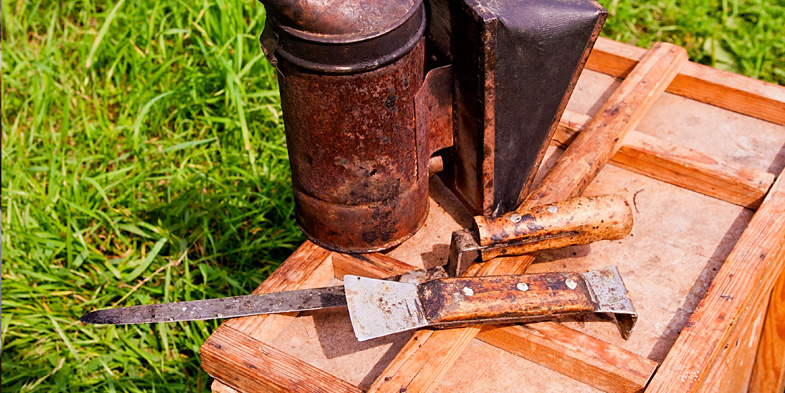
New Equipment
This is a good time to take stock of items you may need for next season and make a list ready for the suppliers’ winter sales period. Don’t forget to pin up the list of expensive items, so friends and family can see it as a gift list – if you get my drift! 😉
Recipe: Spicy Honeyed Carrots
Recipe kindly provided by Elizabeth Savage.
- 1/4 cup butter
- 6 carrots, peeled and cut into julienne strips
- 1/4 tsp salt
- 2 tsp mild honey
- 1/2 tsp dry mustard
- pepper
In a large frying pan with a cover, melt the butter. Add the carrots, sprinkle with the salt and cover lightly. Steam the carrots over medium heat in the butter until tender, 15-30 minutes. Combine the honey, mustard, and pepper to taste, and add to the pan, stirring and turning frequently to coat the carrots evenly. Simmer a few minutes and serve hot.
Beginner Course 2023
We are preparing for our next season’s beginners training program from now on. If any of you think we should be including something you didn’t get from us during your training, please, please let us know because someone else may have wanted what you noticed. It’s all about FABKA as an Association working together for the betterment of others and our bees.
We are all very proud of the recognition afforded to our association this season, so why not use this recognition to promote our craft to new people in this coming season. Additionally, we will be lowering the cost of new membership this coming season – spread the word amongst your likely beekeeper wannabees!
Zoom Meetings and Upcoming AGM
We are having a Zoom meeting this month and look forward to seeing you all virtually. Unfortunately, attendance last month was disappointing. This month the topic is all about wintering your bees and should be very informative and worthwhile.
We will be having a real live AGM plus meeting in November in the Ballydehob Community Hall. We will have our AGM and also we plan on having our first little honey show. We invite any of you with your own honey to enter 1 jar of honey and the first prize winner will receive a trophy. We will also have a raffle and our first prize will be a nuc of bees. We have a lot to look forward to!
A special weekly online educational zoom orientation meeting will be held every Wednesday evening at 19:30 from now on until next year. This is of particular benefit to all members, but especially for those who want to complete Stage Two of the new education framework. The new system is much more hands-on and practical and much less academic. The link will be sent out to you soon and because it’s a recurring link, please take note of it and file it.
Happy beekeeping agus slan,
Mairead Love & the team at FABKA
